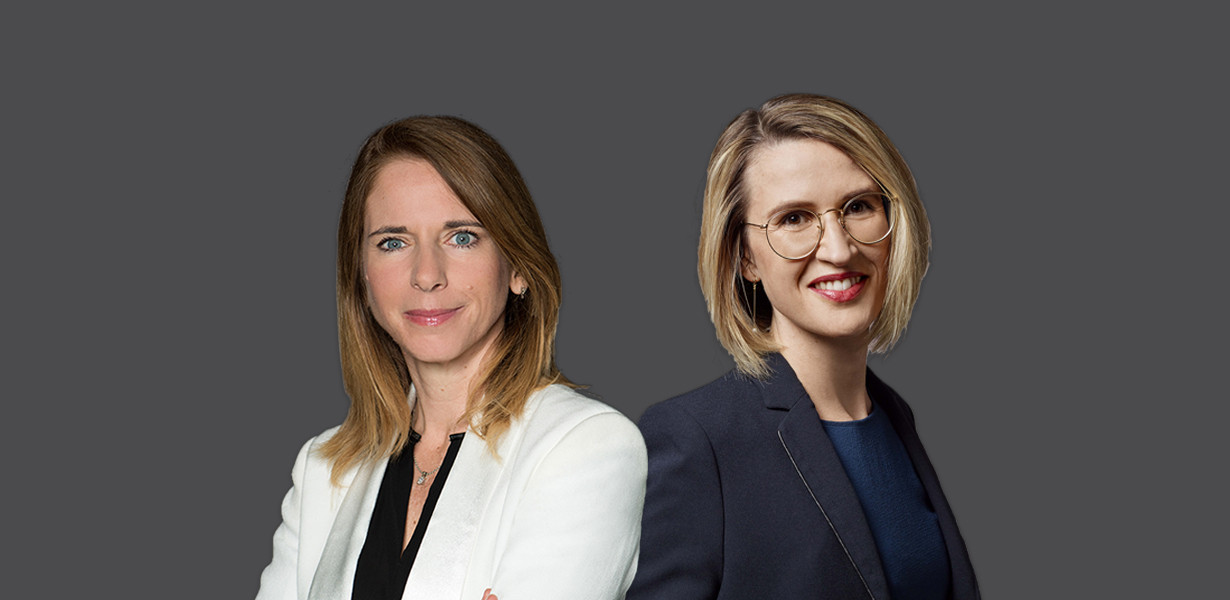ESG ETFs: a fundamental trend
Behind the two acronyms ESG ETF, a fundamental trend is emerging and structuring asset management. What’s it about? ETFs are investment funds that invest in stocks or bonds (Bond ETFs) of dozens or hundreds of different companies, which replicate as closely as possible the performance of a stock market index (CAC 40, Nasdaq, etc.). Launched more than 30 years ago on the US market, they mainly replicate equity indices (for 70% of ETFs), bond indices (for 20% of ETFs) and, to a lesser extent, commodity indices (for 10% of them).
ETFs: numerous benefits for savers and investors
“ETFs offer several benefits,” explains Lorraine Sereyjol-Garros, Head of ETF Development at BNP Paribas Asset Management (Investment & Protection Services Division). “Firstly, they can be bought and sold in real time on the stock exchange at any time and thus have immediate liquidity, while diversifying their investments and thus mitigating their risks. Secondly, management costs are reduced: 0.15% to 0.30%. And above all, the investor knows exactly what they consist of, the methodology, and the objective: to replicate the performance of the index tracked.”
Companies hand-picked, according to their level of ESG integration
ESG ETFs have been gaining ground for several years. “They allow you to invest in a selection of companies with the best ratings for environmental, social and governance (ESG) criteria,” explains Lorraine Sereyjol-Garros. In 2023, ESG ETFs represented 30% of ETF inflows in the European market, compared to only 14% in 2019!
According to the European Sustainable Finance Disclosure Regulation (SFDR), they are currently classified as “Article 8” funds for those with environmental and/or social characteristics and, a step further, as “Article 9” funds for those that also have a measurable long-term sustainable investment objective. Article 9 funds, also known assustainable or “super green” funds, must invest exclusively in companies whose economic activities directly contribute to the achievement of an environmental or social goal.
The SFDR also obliges asset managers to be more transparent, by disclosing detailed information on environmental issues, societal issues and exposure to controversial weapons. “We fill in an average of 400 lines of information to demonstrate that ESG criteria have been taken into account; this helps to avoid suspicions of greenwashing,” stresses Lorraine Sereyjol-Garros.
“Retail investors are increasingly looking for responsible investments that make sense to them and are close to their convictions”
The growing success of ESG ETFs among retail investors
While these ESG index-linked funds were initially very attractive to institutional investors, who are required by regulations to publish their carbon emissions and the environmental and social impact of their portfolios in a transparent manner, they have also won over retail investors.
“Retail investors are increasingly looking for responsible investments that make sense to them and are close to their convictions” explains Lorraine Sereyjol-Garros. The MiFID II regulation, which requires financial investment advisers from 1 January 2023 to collect their clients’ sustainability preferences and to take them into account by offering them aligned investments, will reinforce this trend. Especially since the long term financial performance is good. ESG ETF portfolios perform well over the long term, which makes sense, as companies with sub-optimal governance, for example, are excluded."
BNP Paribas has a ESG thematic ETF focuses on safeguarding the oceans and aquatic life (blue economy).
Thematic ETFs even more popular than generic ETFs
ESG thematic ETFs include companies that have a greater positive impact (or less negative impact) on specific environmental and social issues than their peers.
“We choose secular themes that are essential for the planet and society”
“At BNP Paribas Asset Management, our range covers the themes of carbon reduction, green hydrogen, biodiversity preservation, safeguarding oceans and aquatic life, circular economy, green real estate and sustainable infrastructure,” says Lorraine Sereyjol-Garros. We choose secular themes that are essential for the planet and society and are generally more resistant to market volatility.”
Savers and investors have been won over by these ESG thematic ETFs, which allow them to direct their investments in a concrete way towards financing needs consistent with their convictions.
Sustainable ETFs, whether thematic or generalist, are available to retail investors in two ways: via a securities account, a share savings plan, a retirement savings plan or life insurance, with the help of their banking advisor to select the right products; or via digital platforms, which are highly developed in Germany in particular.
Solutions co-designed by BNP Paribas Asset Management experts
The expertise of an ETF creator and manager such as BNP Paribas Asset Management lies both in the selection of relevant themes to be created, in the drastic selection of the best companies on these ESG & low-carbon criteria as well as the selection of the best associated stock market indices... and then in the work of replicating these indices.
“Our ESG experts closely analyse the reliability and soundness of the ESG data used by the index provider”
“We have a collective approach to conducting this work” explains Marie-Sophie Pastant, Head of ETF & Index Funds at BNP Paribas Asset Management. We combine ESG analysts from our Sustainability Centre with our product development and sales experts. In particular, our ESG experts analyse the reliability and soundness of the ESG data used by the index provider. We have selected several of the best known ones, such as MSCI, JP Morgan, FTSE, Euronext, but also the Italian ECPI. A large portion of our products is aligned with the goals of the Paris Agreement by replicating the Paris Aligned Benchmark (PAB) or Climate Transition Benchmark (CTB) indices.”
"At BNP Paribas Asset Management, we take the time to interact with index providers to access indices on themes we consider essential, such as Circular Economy and Biodiversity,” adds Lorraine Seryjol-Garros. “It may take 6 months to a year to be able to select ans index with a methodology that suits us, but the payoff is worth it: offering our clients more differentiated, attractive products that are in line with our priorities in terms of sustainability.”
BNP Paribas ESG ETFs: key figures as of 3O November 2023
of BNP Paribas Asset Management ETFs are ESG
of BNP Paribas Asset Management ETFs are certified
of new ETFs created by BNP Paribas Asset Management since 2017 are ESG
The most certified ETF range on the market
In addition to taking ESG criteria into account, ETFs can be certified by independent bodies and thus guarantee factual responsibility of the funds: the ISR certification in France, created in 2016 by the Ministry of the Economy and Finance, Towards Sustainability in Belgium, FNG-Siegel in Germany, etc. “Our range has been awarded the highest number of certifications on the market”, Marie-Sophie Pastant continues, with 70% of ETFs brands.”
Becoming the leading financial player in ESG ETFs
Today, 88% of the ETFs offered by BNP Paribas Asset Management are ESG ETFs : a much higher proportion than its main competitors, which may have targets of around 50% on average. Since 2017, the Group’s Asset Manager has launched only ESG ETFs.
“We were a pioneer, launching the first ESG ETF in 2008, focusing on carbon emissions reduction. It was a bit early for the market, but the current success of these ETFs proves that we were on the right track,” says Marie-Sophie Pastant. “We then gradually developed our range. In 2014 we switched a range of ten funds from traditional indices to indices that excluded manufacturers of controversial weapons and their components - which was a real business risk - but we are proud of having done so. We then quickly expanded our ESG offering, launching new ETFs and converting a large share of our traditional ETFs into ESG ETFs, keeping the exposures to the same regions or asset classes.”
30 new ESG ETFs by 2025
The next goal is to launch around 30 new ESG ETFs by 2025, particularly thematic and bond-type ETFs (Fixed oncome ETFs), in response to strong demand. “We want to set ourselves apart through our positioning as a sustainable investor and become the benchmark for ESG-certified ETFs, thereby contributing to our ambition to make BNP Paribas a European benchmark in responsible protection, savings and investment”, concludes Lorraine Sereyjol-Garros. “To achieve this, we can count on several assets, including the fact that we took this step very early on, and thus acquired real credibility in this market”.
This pioneering aproach by BNP Paribas Asset Management is also recognised by awards, including that of Best ESG ETF Provider, won at the 2023 ESG Investing Awards for the second year in a row.
make up the BNP Paribas range, including 13 bond ETFs
with €23 billion in assets under management.
more net subscriptions of BNP Paribas ETFs in 2022 than in 2020
for amount of €7.4 billion net subscriptions in 2022.
of investors consider that ETFs available on the market demonstrate real sustainability benefits
and have a positive impact on ESG issues (ESG ETF Barometer published by BNPP AM on 13 February 2023).
"Launching only ESG ETFs"
Read Renaud DOMRA's LinkedIn post, BNP Paribas Deputy Chief Operating Officer, Head of Investment & Protection Services (unavailable link) division.
DISCLAIMER
Please note that articles may contain technical language. For this reason, they may not be suitable for readers without professional investment experience. Any views expressed here are those of the author as of the date of publication, are based on available information, and are subject to change without notice. Individual portfolio management teams may hold different views and may take different investment decisions for different clients. This document does not constitute investment advice. The value of investments and the income they generate may go down as well as up and it is possible that investors will not recover their initial outlay. Past performance is no guarantee for future returns. Investing in emerging markets, or specialised or restricted sectors is likely to be subject to a higher-than-average volatility due to a high degree of concentration, greater uncertainty because less information is available, there is less liquidity or due to greater sensitivity to changes in market conditions (social, political and economic conditions). Some emerging markets offer less security than the majority of international developed markets. For this reason, services for portfolio transactions, liquidation and conservation on behalf of funds invested in emerging markets may carry greater risk.





